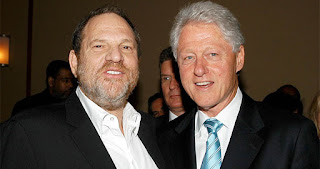I visited a website recently on which there was some discussion of the multiverse. One of the claims made was that if the multiverse is real then everything that can happen, i.e. everything that's logically possible, will happen somewhere among the near-infinite worlds that populate the multiverse.
I replied to that claim with the observation that one consequence of this is that if there is in fact a near-infinite number of different universes in which all logical possibilities are somewhere actualized then it follows that there must be a God.
The justification for this claim is that if in the multiverse all possible states of affairs are realized then there must be a world somewhere in the multiverse in which it’s true to say that a maximally great being (MGB) exists.
But if it's true that there is an MGB in one world it follows that this being must exist in every world (otherwise it wouldn't be maximally great), including our own. Since a "maximally great being" is what we mean by "God," it follows that if there's a multiverse then God must exist in our world.
A reader responded with two questions:
1. Since a maximally great individual would have to be the greatest in all possible fields, wouldn’t maximal “greatness” include maximal evil? Are we suggesting that Satan was the Creator?
2. The other problem is that if ... it’s not possible to get – or create – something from nothing then, since there is something, that something must always have existed. And if something has always existed, it was never created, so there is no need for a Creator. Is there?
These are interesting questions. One possible answer to the first is this:
An MGB is a being which possesses all
compossible great-making properties (Compossible properties are properties it's possible to possess at the same time without contradiction.). Maximal evil and maximal goodness are not compossible properties. Thus the MGB would be either maximally good or maximally evil, but not both, and there are a number of reasons for thinking that the MGB is
not maximally evil. Here's one:
If the MGB were maximally evil it's hard to account for why there would be so much good in the world. If maximal evil created the world it would seem that this world would be an unmitigated hell, and it's clearly not.
A reply to this might be that if the MGB is maximally good then we should expect this world to be heaven, but it's clearly not.
This is so, but the reason there is suffering and evil in the world is largely because of human free will which is bestowed on us because it's an eminently good property to have. A maximally evil being would have no reason to bestow upon us anything that was good. Thus, unlike the evil in this world which is at least partly explicable in terms of free will, goodness in a world created by a maximally evil being would be inexplicable.
We might also note that the problem posed by the first question still leaves the argument for an MGB intact. Even if an MGB
could be maximally evil it's still the case that a multiverse entails the existence of a maximally great being, one which is the ultimate cause of all that is.
As for the second question there are also several possible answers. Here are a few:
First, cosmologists
have shown that the mathematics of eternity require a beginning to the universe. If this is so, then the universe hasn't always existed.
Second, it's true that something (i.e. material substance) doesn't pop into being out of nothing (i.e. the complete absence of anything), but by "nothing" is not meant the complete absence of anything but rather the absence of any pre-existing material substance. An MGB is not material substance but neither is it the complete absence of anything. Rather, it is pure being itself.
Moreover, even if matter were eternal or infinitely old that would not remove the need for a cause of its existence. Since it's possible for matter, as well as the universe that's made up of matter, to not exist, the universe is a contingent entity. However, contingent entities require a non-contingent (i.e. necessary) entity as their ultimate sustaining cause.
The ultimate sustaining cause of the universe must not only be a
necessary being (i.e. it doesn't depend on anything else for it's existence), it must also be very powerful (since it has created a universe), very intelligent (since it has designed a universe), non-spatial (since it's outside the spatial universe), and non-temporal (since it's outside the temporal universe).
In other words, it has many of the same properties we attribute to a Maximally Great Being.
